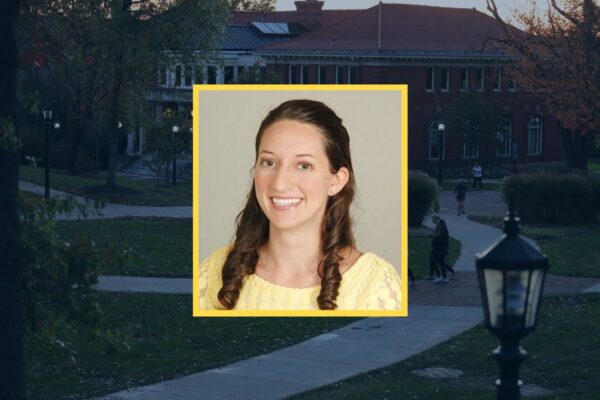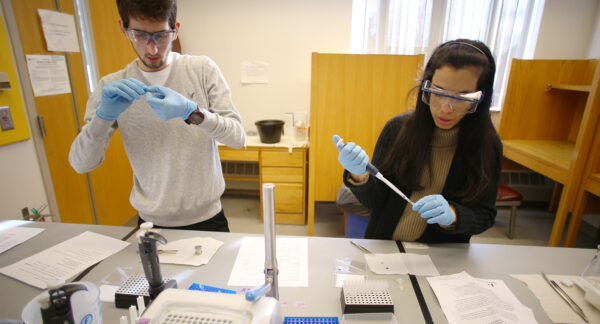Pre-Health
Why Prepare for Health Professions at Allegheny College
Allegheny students preparing for graduate programs in the health professions use their major, minor, and elective courses to create precisely the programmatic balance that professional schools are seeking, and that leads to success in professional school itself. Elements of such a program include: a strong foundation in the natural sciences (in or outside the selected major), highly developed communication skills, a solid background in the humanities and social sciences, study in depth (in any major field that is personally stimulating), and independent study and research (including the Senior Project).
Unusual Combinations
Students often combine Pre-Health with:
In addition, cooperative degree programs with other institutions enable Allegheny students to acquire a solid liberal arts background while accelerating their progress toward professional training and certification.
Program Type
- Accelerated / dual degree
- Pre-professional
Your Four-Year Journey
There are many ways that a student can schedule the pre-health core curriculum with any desired major or experience. If you’re considering one of these paths, we strongly encourage you to check in with the Director of Pre-Professional Studies early on. Having a dedicated advisor to guide you through the process can make all the difference.
Early on, the advisor will help you to understand program requirements, design a schedule that allows for an unusual major/minor combination, create a schedule to allow for study abroad if desired, and evaluate strategies no matter their goals or anticipated path.
Later on, this advisor will help to ensure you’re knowledgeable about deadlines and provide valuable insight into how to strengthen your application. Plus, they can assist with the necessary forms and collaborate on the path you’re on.
Taking advantage of this resource early will set you up for success! Register your interest with the Pre-Professional Advisor as soon as you become a Gator.
There are many paths that you can take on your journey to a health professional school. Although a core of science and English courses are required, any academic major can prepare you with the right core skills, and Allegheny encourages unusual combinations of majors and minors. In addition to academic work in the sciences, it is important to develop strong verbal skills and a greater appreciation of ideas and cultures.
Allegheny holds a reputation among professional schools for a challenging academic program that produces well-prepared, articulate and successful graduate students, and that includes access to research experiences each year, with hands-on learning including summer experiences and independent study.
Allegheny offers a breadth of accelerated/dual-degree programs related to health professions, listed in the next section, and our list of alumni in these fields is ever growing.
Students typically spend at least their first three years at Allegheny before moving on to their graduate studies. To earn your Allegheny degree, you’ll still need to complete a major, a minor, first-year courses, and distribution courses.
Some major-minor combinations align particularly well with both Allegheny’s graduation requirements and the prerequisites for these graduate programs. That’s why meeting with the Director of Pre-Professional Studies in your first year is a great idea—it’ll help you plan effectively and stay on track.
Featured News

Allegheny Graduate Serves Marginalized Through Pediatric Surgery
Driven by a passion for serving the marginalized, Marla A. Sacks ’13 has traveled to the Philippines, Ghana, Zambia, and Vietnam to perform critical pediatric surgery in low-resource areas while pursuing a general surgery residency at the State University of New York Downstate Health Sciences University. “I am humbled each day to have the opportunity […]





